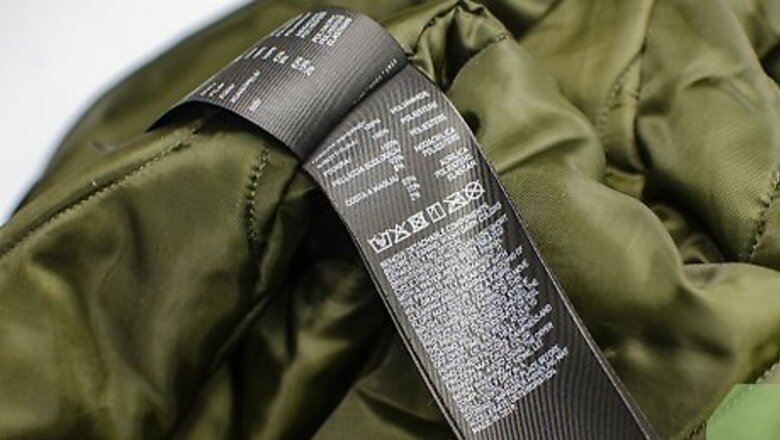
views
Checking Your Coat’s Washing Instructions

Look for specific instructions on your coat’s care label. Check the inner lining of your coat to find the care label. See if this tag says “dry clean” or “dry clean only." Generally, clothing manufacturers use “dry clean” as a catchall suggestion for more delicate garments, while “dry clean only” indicates that the coat is made with sensitive materials that could be permanently damaged when machine washed. On clothing care labels, dry cleaning is signified with an open circle. Depending on the garment, you might see the letters A, P, or F within the circle, which provide detailed cleaning instructions to a professional cleaner.
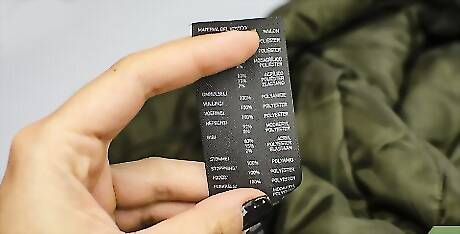
Find out what material your coat is made out of by looking at the care tag. Continue reading the care label to get a detailed description of your coat’s fabric. You may need to check the backside of the tag to find this information. Note that certain types of coats, like down or faux fur, can be machine washed on a delicate cycle, while thicker materials like wool are better off hand washed. Common fabrics like linen, polyester, and cotton can sometimes be machine washed, even if the label says “dry clean only.” Sensitive fabrics, such as silk and wool, need to be hand washed.

Send heavily stained, embellished, and delicate fabrics to the dry cleaner to be safe. If your coat is made with polyamide or viscose, or crafted with pleats, sequins, shoulder pads, or other embellishments, it's best to let a professional handle the cleaning. Long-lasting or grease-based are also risky to treat at home, and are best handled by a dry cleaner. For instance, if you spilled margarine or some type of oil on your coat, it's best to send it to a professional for cleaning.Warning: Delicate fabrics like leather, suede, taffeta, rayon, and velvet are too sensitive for home washing, and should always be sent to the dry cleaner. As a general rule of thumb, cotton, nylon, linen, wool, silk, and polyester blends are the only fabrics that can be safely washed at home.

Spot test a small section of your coat with a cotton swab and detergent. Dip a Q-tip with a few drops of water mixed with mild detergent. Lightly rub the swab over a tiny, pea-sized section of your coat. Examine the swab carefully to see if any dye bleeds onto the cotton tip. If the dye bleeds, your coat is too sensitive to machine or hand wash, and needs to be cleaned by a professional. If the cotton swab doesn’t soak up any dye, then you can wash it with water and mild detergent. Cheryl Mendelson, Homekeeping Expert Dealing with "dry clean only" stuff at home can feel scary, so go in informed and carefully. First, try a small, hidden spot with some alcohol and salt to make sure the color and material hold up. For clothes that pass the test, gently hand wash in cold water with a mild detergent, without too much scrubbing. Lay flat to dry away from direct sun or heat. The point is if you understand what the fabric needs and handle it right, you'll keep your clothes looking beautiful and lasting longer.
Placing Your Coat in the Washer
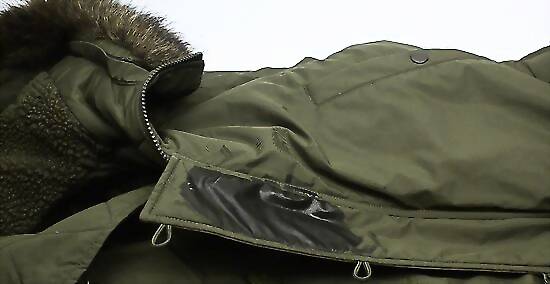
Sponge over any light, non-greasy stains with cool water or stain remover. If your coat has a light surface stain, dip your sponge into a bowl of cool water and lightly press it over the stained area. If this doesn't remove the stain, coat the sponge with a pea-sized amount of stain removing solution, then massage the product into the spot. Once the stain is gone, dip the opposite side of the sponge in cool water and dab it over the same spot to rinse away any leftover stain remover. If the stain is still there, you may want to send your coat to a professional for cleaning. Always check the label on your stain remover before rubbing it into your coat. Some products may be ideal for specific fabrics. This method only applies to non-greasy stains like soda or wine. If your coat has a greasy spot or another tough stain that's set into the fabric, take your coat to a dry cleaner instead.
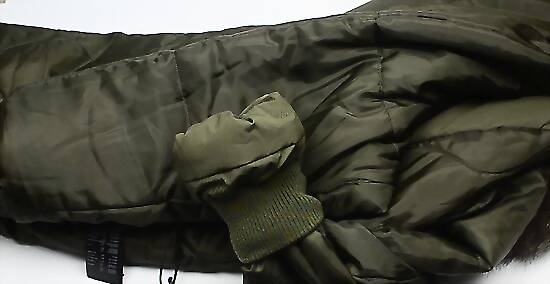
Turn your coat inside-out before washing it. Tuck the sleeves inward, so the outside of your garment isn’t as exposed to the washing cycle. Additionally, check that there are no loose items in your pockets that could interfere with the washing process. Materials like linen, cotton, polyester, and nylon can be machine washed, while more delicate fabrics like wool and silk should always be hand washed.
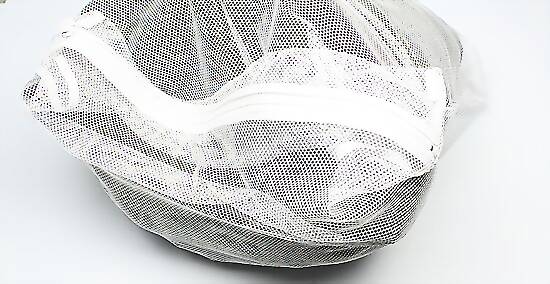
Slide the coat into mesh laundry bag and put it in your machine. Arrange the inside-out coat in a large laundry bag, so the item isn’t tossed around by the washing drum. Zipper or secure this bag closed so the coat stays put throughout the washing cycle. After this, you can place this single item in the washing machine for its own specialized cycle. The laundry bag cushions the coat throughout the wash cycle.
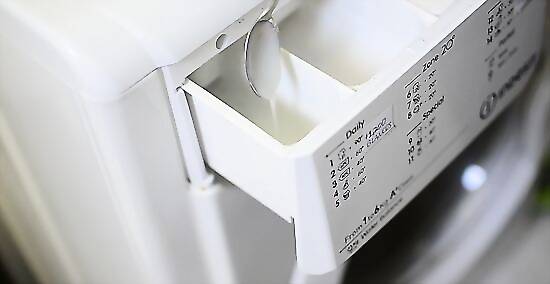
Add 1 teaspoon (4.9 mL) of mild detergent to the washing machine. Pour the laundry detergent into the proper section of your washing machine. Double-check that the detergent is labeled as “gentle” or “sensitive,” as you don’t want to damage your clothes with a concentrated cleaner.

Set your machine to a delicate wash cycle with cold water. Check the settings on your machine and make sure that your coat will be washed and rinsed with cool or cold water. Since you don’t want to damage or fray any of the material in the machine, set the washer to a delicate or low-spin cycle. Don’t worry about setting a specific amount of time for the cycle, as most washing machines will be programmed with a preset time.
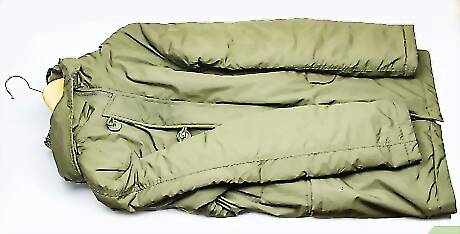
Remove the coat and lay it on a flat surface to air-dry completely. Once the wash cycle ends, remove the mesh bag from the washing drum. Unzip or loosen the bag to grab your damp, freshly-washed coat. Next, arrange your garment onto a flat clothing rack, so the clothing item can dry fully and evenly over a day or so. If you’re in a rush to wear the coat again, check the material periodically until it feels dry to the touch.
Handwashing Your Coat
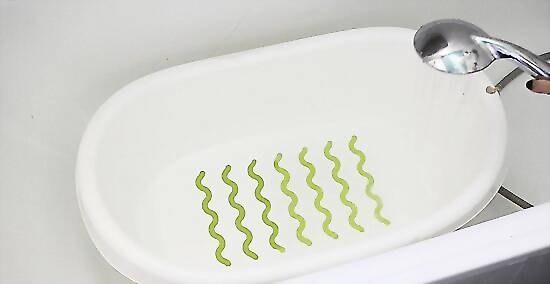
Fill a large basin or tub halfway with cool tap water. Find a bucket, basin, tub, or other container that’s large enough to comfortably hold and soak your coat. Next, fill up this container halfway or so with cool tap water. Try not to fill the basin or tub up all the way, or it might overflow when you put your coat in.
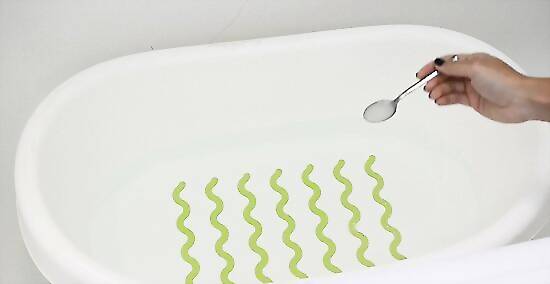
Add 1 tsp (4.9 mL) or so of mild detergent to the water. Use your hands or a larger stirring tool to mix the detergent into the water until you see suds. Try not to pour more than 1 teaspoon (4.9 mL) into the tub, as you want the washing process to be as gentle as possible. Check that the detergent is labeled with “gentle” or “mild.” Wear rubber gloves if you plan on stirring the sudsy water by hand. For sensitive materials like wool and silk, use specialized detergents designed specifically for those materials.
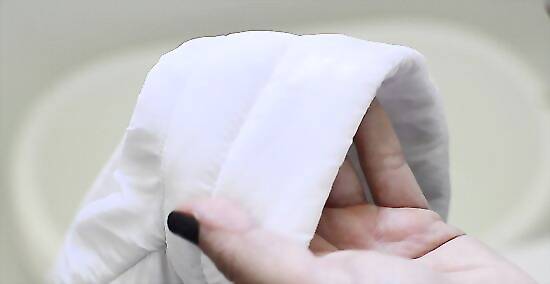
Pre-treat the stain with a stain remover. Pour a pea-sized amount of stain remover onto a sponge, then dab the solution onto your coat, focusing especially on the sleeves and collar If you have stains on the inside of your coat, turn it inside-out and rub over the problem spots, placing a particular focus on the underarm area. Don't worry about rinsing or washing off the stain remover from your coat unless the product label instructs you to do so. Always check the label of your stain removing product to make sure that it won't damage your coat's fabric in any way. To be safe, look for specialized stain removers designed for delicate materials like silk or wool. If your coat is stained with something greasy, you should send it to a dry cleaner.
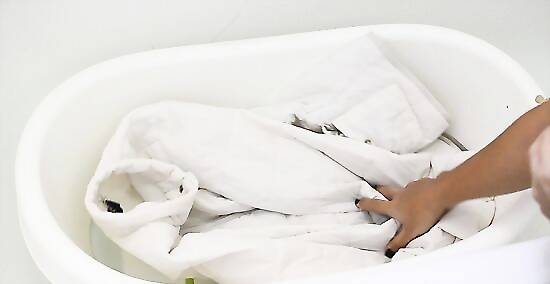
Place the coat in the basin or tub and submerge it in the water. Use both hands to move the garment around, ensuring that the front, back, and sleeves of the coat are drenched. Once the item is fully soaked, let it rest in the basin. If the stain doesn't wash away, consider taking your coat to a dry cleaner instead.
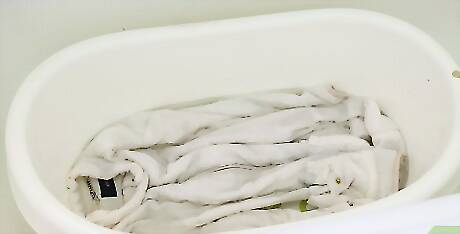
Soak the garment for 30 minutes. Set a timer for a half hour, or until you think the coat is sufficiently clean. You don't have to stir or flip the garment over at any point—instead, you can leave it to sit and soak.
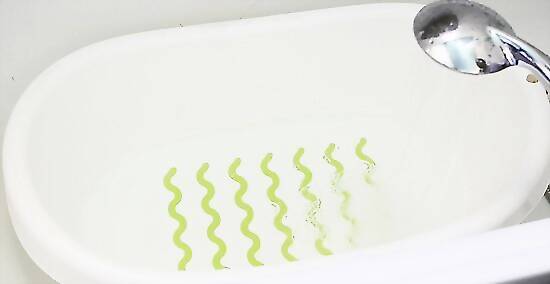
Empty the container and fill it halfway with clean water. Pour or drain out the sudsy water until the container is completely empty. To get rid of any lingering soap or suds in the fabric, fill the basin or tub back up with cool tap water. Make sure that there’s enough water to submerge your coat, so you can rinse it thoroughly. You don’t need to remove the coat at this point.
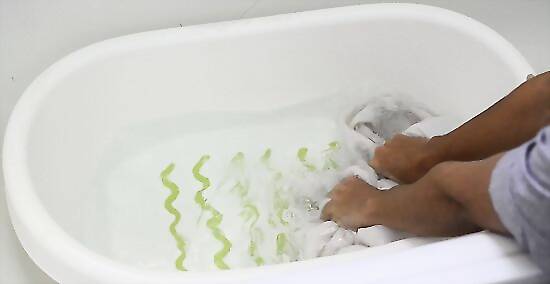
Soak your coat in the clean water until it’s no longer sudsy. Lift and lower your coat out of the basin to get rid of any obvious suds. Continue dipping your coat until the item looks completely clean and is only dripping clean, clear tap water.
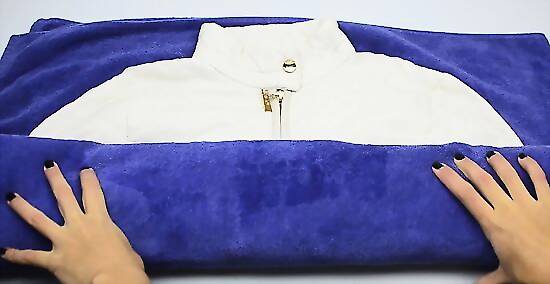
Roll the garment in a dry, clean towel to soak up any excess water. Lay a large, dry towel out on a flat surface. Arrange your coat on top of the towel. Pinch and fold 1 end of the towel, then roll both the towel and garment lengthwise into a tight coil to squeeze out any excess water. Unroll the towel and repeat the coiling process until the coatis no longer dripping wet. To prevent water spilling everywhere, it might help to do this near a tub or sink.
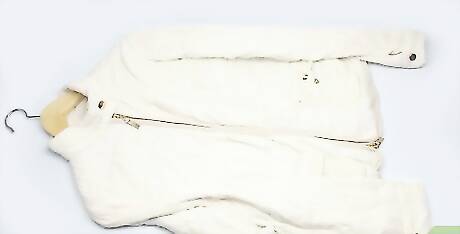
Place your coat on a flat surface so it can air-dry. Take your damp garment and drape it horizontally on a clothing rack. Make sure that the sleeves are splayed to the side, and that the garment overall is laid out in a single flat layer. Wait at least 1 day for the coat to dry completely, or until the item is fully dry to the touch.Warning: Never use a tumble dryer after washing a “dry clean only” coat, as this can permanently damage the material. Only use a tumble dryer if you plan on using dry cleaning sheets.
Using Dry Cleaning Sheets
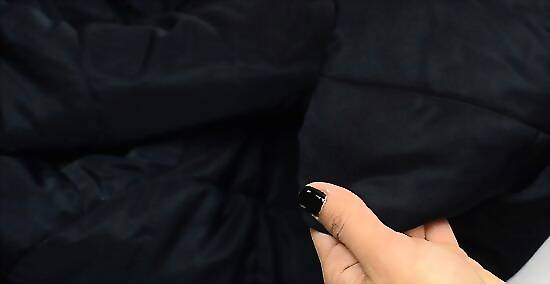
Pretreat any stains with special wipes if the at-home kit includes them. Check the instructions that came with your personal dry-cleaning kit and see if any stain treating towelettes are included. Don’t worry about this part of the process if your coat isn’t visibly dirty, or if the kit doesn’t include this. Check the instructions to see if the dry cleaning sheets work well with your coat’s fabric type. If the material isn’t listed on the box or kit instructions, then you might want to contact a professional dry cleaner. You can purchase these kits online, or in most stores that sell laundry supplies.
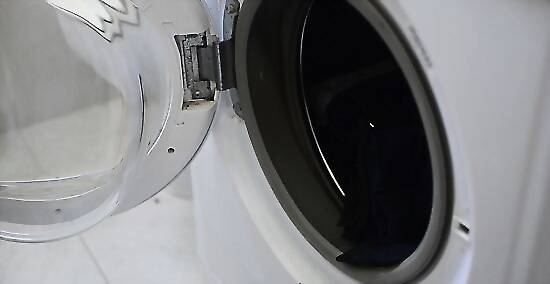
Stick your coat in the dryer with a dry cleaning sheet. Place your coat in the tumble dryer, along with 1 dry cleaning sheet. If you need to clean more than 1 coat, read the instructions on the kit to see how many garments a single sheet can clean. If your coat is especially bulky, consider washing it by itself. Some sheets can wash up to 4 garments at once.
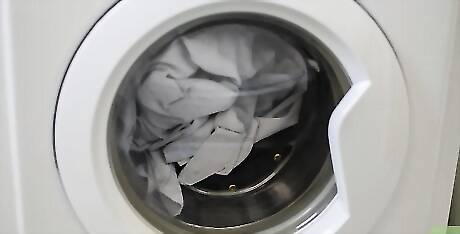
Run the dryer for 15-20 minutes on medium heat. For specific guidance, read the kit’s instructions to see what the recommended time is for your garment. If your coat is especially dirty, check the instructions on the dry cleaning sheet package to see how long your garment can be kept in the dryer. Depending on the brand, you may be able to dry your coat for up to 30 minutes.

Hang your coat up immediately after the drying cycle ends. Take your coat out of the dryer immediately, so it doesn’t develop wrinkles. Toss out the old dry cleaning sheet, then use a traditional clothes hanger to store your coat.



















Comments
0 comment